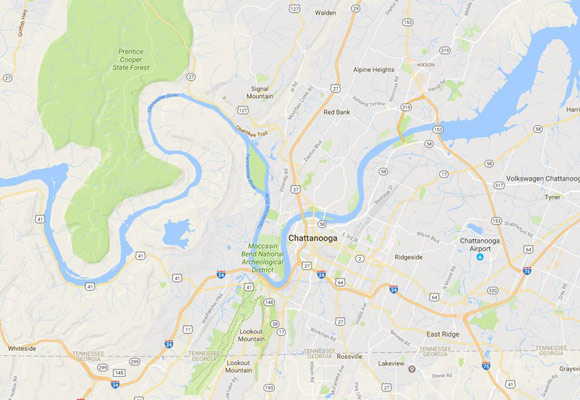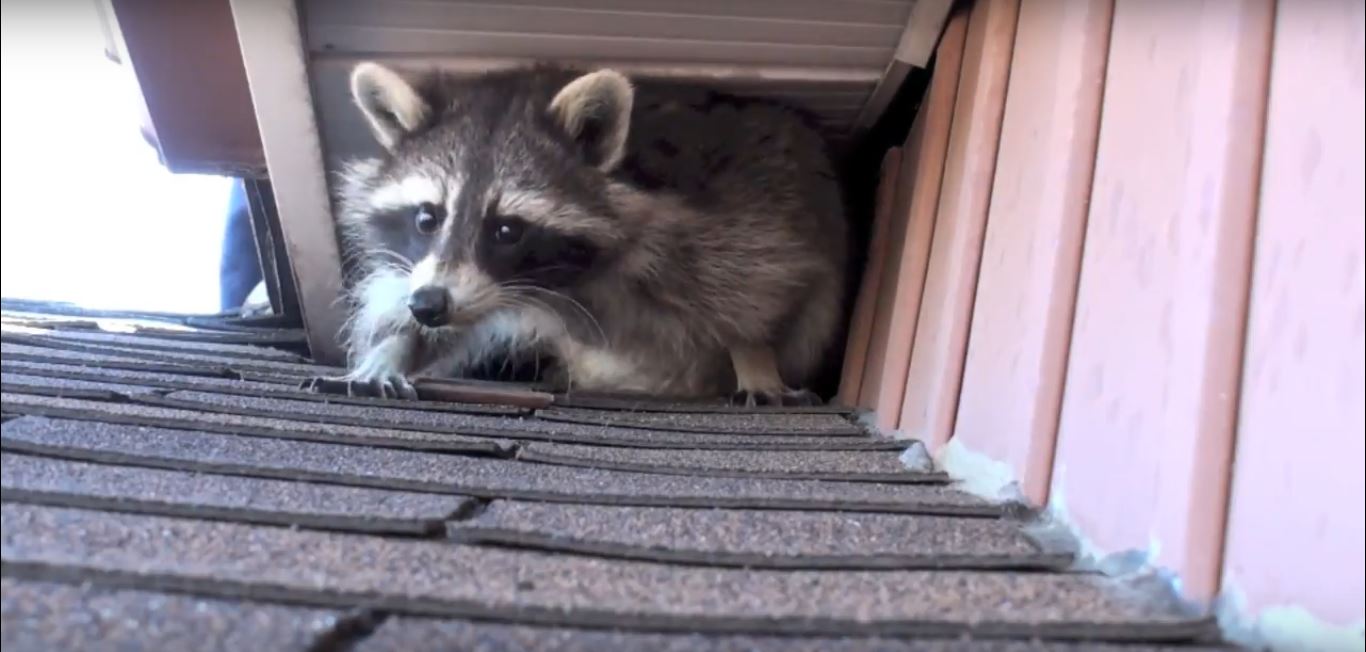
Pest Animal Removal Chattanooga - Wildlife Control
Welcome to Pest Animal Chattanooga! We are a wildlife removal company servicing Chattanooga, TN. If you're here, we're assuming that you have a wildlife control problem on your hands, and you've definitely come to the right place to get that particular problem solved. Dealing with invading animals is what we do, all day, every day. And by that, we do really mean all day, every day. Our telephone operators are on hand to answer your call 24 hours a day, 7 days a week, and so are our friendly control officers. Being a family-run business, we appreciate the stress and hassle that a pest in the home can have, and that's why we like to offer all of your customers a five-star service that includes same-day emergency appointments; fully licensed, insured, and trained officers, and a service that we're sure you won't be able to beat. There's a reason we've been voted the #1 animal removal service in the Metro area for the last three years! Call us now at 423-388-4411 for your Chattanooga wildlife control needs.
About Pest Animal Chattanooga and Our Services:
Nuisance wildlife trapping and removal.
Critter damage repair to your home.
Attic restoration and decontamination.
We never use poisons! We don't handle insects.
Licensed and insured in Tennessee
Chattanooga rat control and rodent removal
Bat control in Chattanooga - removal from attics
Raccoon and skunk removal in Chattanooga
Chattanooga dead animal removal inside houses.
Tennessee Snake control services
Bird Removal and Prevention
We look forward to hearing from you!
Our Service Range

Our Service Range
We service Bradley County, Catoosa County, Dade County, Hamilton County, Jackson County, Marion County, McMinn County, Murray County, Polk County, Rhea County, Sequatchie County, Walker County, and Whitfield County. We service towns like Chattanooga, Cleveland, Dalton, East Ridge, Athens, Collegedale, Middle Valley, Red Bank, Scottsboro, Soddy-Daisy, Dayton, Fairview, Fort Oglethorpe, Harrison, LaFayette, Signal Mountain, South Cleveland, Apison, Benton, Bridgeport, Chattanooga, Chatsworth, Chickamauga, Dunlap, East Cleveland, Englewood, Etowah, Fairmount, Falling Water, Graysville, Hopewell, Hollywood, Indian Springs, Jasper, Kimball, Lakesite, Lakeview, Lone Oak, Lookout Mountain, Monteagle, Mowbray, New Hope, Powells Crossroads, Ringgold, Rossville, Sale Creek, South Pittsburg, Spring City, Stevenson, Trenton, Tunnel Hill, Varnell, Walden, Whitwell, Wildwood Lake and more.Chattanooga Wildlife Removal Tip of the Month: About Raccoon Life and Habitat
Raccoons are abundant, and found crossways most of North America. Their numbers plus
range have actually increased over the last fifty years, as with the loss of interest
in raccoon hunting. Raccoons are wonder opportunists, and have modified well to town
life. They are amongst the most ordinary species of nuisance Chattanooga wildlife found in cities
as well as towns. Raccoon prefer a habitat through small stands of trees and logs nearby
to farm fields, and fresh/water close by. Raccoons are mammals covered in a thick silvery
brown fur with distinctive markings on their face. They have a black “mask “around their
eyes that protects their eyes from glaring light as they move around in the dark. This
feature and their manual dexterity is the source of their nickname, Tennessee “masked bandits”.

They have notoriously poor eyesight in light, and are believed to be colorblind, but their night
vision is exceptional. Their long banded tail of alternating black and brown is another unique
characteristic. They have long slender fingers on their hands and feet that work much like human
hands for grasping and opening things. They have no opposable thumb like primates, but unlike most
carnivores, they lack webbing between their fingers, and the skin is very tactile and grips well.
Their tactile characteristic is what causes them to “douse” or appear to clean their food before
eating it. They are actually discarding unwanted bits using their great ability to ‘feel” the quality
of the food. They also have a dual cooling system. Raccoons are able to control their body temperature
by both sweating, and panting. Their bodies are 24-48 inches long, they stand about 1 foot high, and an
adult weighs from 8-20 pounds depending on available food and time of year. Tennessee raccoons are noted for their
high intelligence.
They are able to accomplish many tasks that show a high level of cognizant skills. Several studies have
shown that once a raccoon masters a task they are able to remember the solution for up to three years
even if they have not repeated it during that time. Chattanooga raccoons are nocturnal (preferring to move at night)
and omnivorous. They are excellent hunter/gatherers, and will eat most everything: crayfish, bug, larvae,
fruit, grains, invertebrates, small mammals, bird eggs, reptiles, amphibians, and most any crops. It is not
uncommon to find raccoons prowling trashcans and dumpsters. Often-urban raccoons will {commute} to their
favorite food sources by travelling through the sewers system Somehow, they always know the best spots
to hit for a tasty meal.
Raccoons are in-taking machines and must put on wide reserves of fat in order to provide throughout the lean
winter months. Though raccoons do not lie dormant, they stay in their dens for a whole month at a time for the
period of inclement weather, and must often go through winter with no eating at all. In extreme winter weather,
several raccoons may come together for warmth. Raccoons do not build their own homes, but take advantage of a
wide variety of empty spaces. While empty trees are a favorite nesting location, they are perfectly at home
in your barns, attics, abandoned large forks in tree, nests, crawl spaces beneath houses and sheds, dumped
vehicles, and most anywhere else they fit. Though normally a solitary Chattanooga animal, raccoons will come together to
breed, stay warm in the winter, and use the “latrine". The spot used for a bathroom by raccoons is called a
latrine. Several raccoons will have territories that overlap at a central latrine they all use. Reproduction
begins in around December. Females typically give birth to one to six babies between April and May. Mothers
are very defensive of their young and spend most of their time with them, leaving them only to forage. Females
will often join in groups of 3-5 Tennessee raccoons to protect each other from aggressive males during pregnancy. She
will separate from her after about a year to eighteen months. Males and females only cohabitate for breeding.
Raccoons, like many wild Tennessee animals, can carry more than a few bacterial diseases plus parasites that can be
transmitted to humans as well as pets through a bite or the ingestion/breathing of raccoon waste. A quantity
of diseases that can affect humans also pets include roundworm, salmonella, leptospirosis and rabies. One
recorded case of human contracting rabies exists in North America, but they believed to infect many other
animals including domestic dogs. Rabid Chattanooga raccoons will exhibit very odd behavior like coming out in the daylight,
extreme aggressiveness, drooling or frothing at the mouth, and loud vocalizations. If you see, a raccoon with
these systems STAY AWAY and contact animal control immediately!
Raccoons are a wild animal, and like any wild creature should not be approached if you come across one. Never
try to pick one up or pet it. If come across a den of babies, they are most likely not abandoned. Leave them
alone! Chances are, mom is just out hunting somewhere nearby, and will not take kindly to you stealing her
young. Tennessee raccoons are not known to be good pets, because despite their high intelligence, they do not wish to
be trained nor domesticated.
Other Wildlife Control Chattanooga information
- Find and Remove a Dead Opossum
- Is Raccoon Feces Dangerous to Touch or Breathe?
- Will The Chattanooga Animal Services Help Me With A Skunk Issue?
- An Analysis of Inhumane Glue Traps for Rats
- Is it Legal to Trap Opossums?
- Do Mothballs or Ammonia Help Repel Skunks?
- Groundhog Prevention Tips
- Is an Opossum That is Active During the Daytime Sick or Rabid?
- Is It Safe To Handle Squirrel With Bare Hands?
- How to Get Bats Out of the Attic

